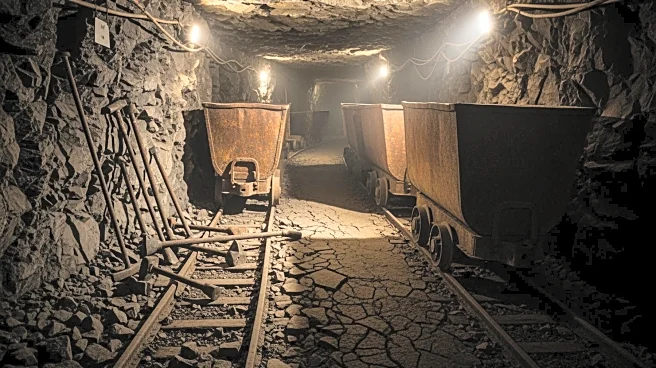What's Happening?
Victoria Woodburn, a former communications specialist at The Aerospace Corporation, has transitioned to a role at the World Economic Forum (WEF) in Switzerland. Her work focuses on developing a National Space Strategy Toolkit aimed at helping emerging space nations align their strategies with national priorities. This toolkit is designed to leverage space capabilities for critical needs such as disaster response and water management. Woodburn's career shift from reporting on space to shaping its governance highlights her commitment to addressing political and regulatory challenges in the space industry. Her collaboration with the Saudi Space Agency's Centre for Space Futures aims to translate the risk of orbital debris into economic terms, emphasizing the importance of debris mitigation and remediation technologies.
Why It's Important?
Woodburn's work at the World Economic Forum is significant as it addresses the growing need for international collaboration in space policy. By developing tools that help nations integrate space technologies into their national agendas, Woodburn is fostering a more inclusive approach to space exploration. This initiative could lead to improved disaster response and resource management, benefiting countries with emerging space programs. Additionally, her focus on orbital debris highlights the economic implications of space sustainability, urging non-space actors to recognize the importance of space capabilities. The toolkit and her collaboration with the Saudi Space Agency could drive policy changes and investments in space technology, impacting global space governance.
What's Next?
Woodburn's ongoing collaboration with the Saudi Space Agency's Centre for Space Futures is set to produce a study that quantifies the economic risks of orbital debris. This study aims to build a stronger case for investing in debris mitigation technologies. As nations increasingly recognize the economic benefits of space technologies, there may be a shift towards more collaborative international space policies. The toolkit developed by Woodburn could serve as a model for other countries, encouraging them to integrate space capabilities into their national strategies. This could lead to increased funding and support for space initiatives, fostering global cooperation in space exploration.
Beyond the Headlines
The development of the National Space Strategy Toolkit by Woodburn at the World Economic Forum highlights the ethical and cultural dimensions of space policy. As nations strive to advance their agendas through space technologies, issues of trust and collaboration become paramount. Woodburn's work underscores the need for transparency and mutual understanding in international space relations. By addressing the political and regulatory hurdles in space governance, her efforts could lead to a more equitable distribution of space benefits, promoting peace and cooperation among nations.








